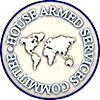


|
| For
Immediate Release: March 18, 2004 |
Contact: |
Harald Stavenas |
OPENING STATEMENT OF
CHAIRMAN MCHUGH
Total Force Subcommittee Hearing on
Defense Health Program: Current and Future
Issues.
Today, the Subcommittee on Total Force meets to hear testimony on current and future issues for the Defense Health Program from the perspective of the Department of Defense, beneficiary groups, and private industry. I welcome our witnesses and look forward to your testimony.
The Department faces significant challenges as it carries out its dual mission of maintaining medical readiness capabilities for wartime while providing peacetime healthcare for an estimated 8.9 million eligible beneficiaries. What makes the challenge more interesting is that we rightly expect that the Department provide the highest quality of care in an environment where healthcare costs continue to rise.
This subcommittee already has held two hearings this year to examine health matters related to the Global War on Terrorism. During today's hearing we will focus on:
-
The adequacy of the Defense Health Program budget for Fiscal Year 2005 - especially in light of the increasing number of beneficiaries utilizing the military health system, the national phenomenon of rising healthcare costs, and the significant growth of $1.6 billion in the annual contribution to the Medicare-eligible Retiree Health Care Accrual Fund to support TRICARE-for-Life.
-
We would like to know the status of the transition efforts to the next generation of TRICARE contracts. By the end of 2004, the Defense Health Program will have undergone a colossal effort - during a war, no less - of transitioning billions of dollars worth of existing contracts into new -- and very different -- contracts. We must ensure that the transition to the new contracts does not negatively affect beneficiary healthcare, and that it improves optimization of military treatment facilities while preserving high quality, accessible healthcare.
-
We want to review the efforts that have been made to improve access to health care both in the direct care system and through civilian healthcare providers. In particular, we want to know how DOD is implementing the TRICARE Standard provisions from the National Defense Authorization Act for Fiscal Year 2004.
-
We will also take this opportunity to review efforts to enhance collaboration and sharing of healthcare resources between the DOD and VA - especially those recommendations made last year by the President's Task Force to Improve Health Care Delivery for Our Nation's Veterans.
-
Also, we want to hear of DOD's progress in implementing the enhanced health care benefits for the reserve components enacted in 2004 National Defense Authorization Act.
-
Finally, we will explore the Department's response to recommendations for made by Dr. Alfred Buck and his colleagues in a 2001 report to DOD regarding Defense Health Program reforms.
###
2120 Rayburn House Office Building
Washington, D.C. 20515
|
NEWSLETTER
|
| Join the GlobalSecurity.org mailing list |
|
|
|

